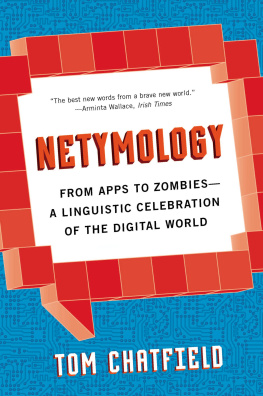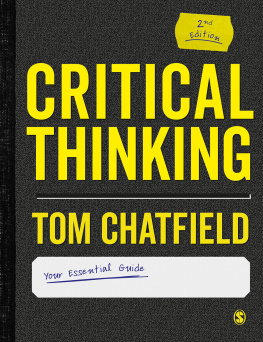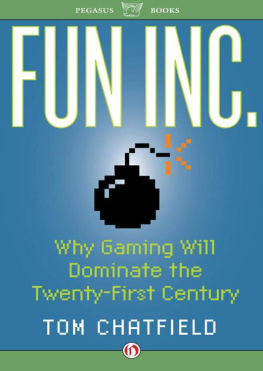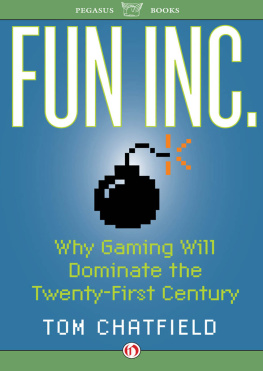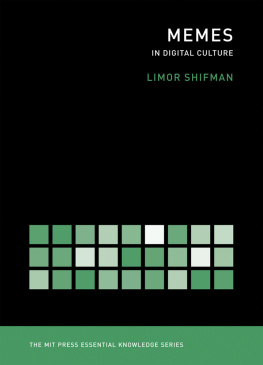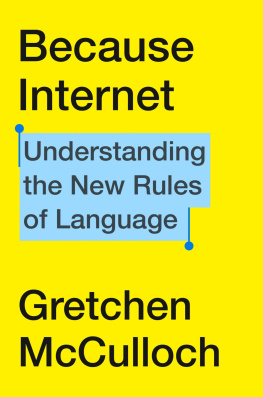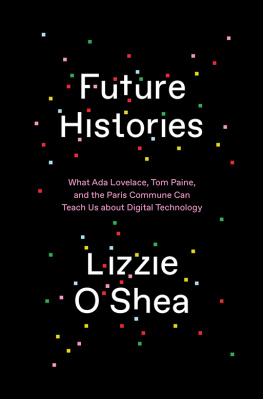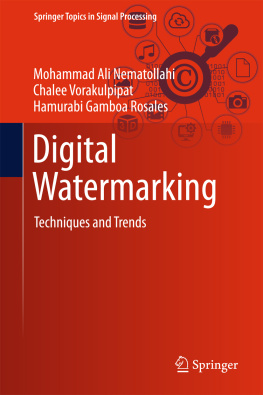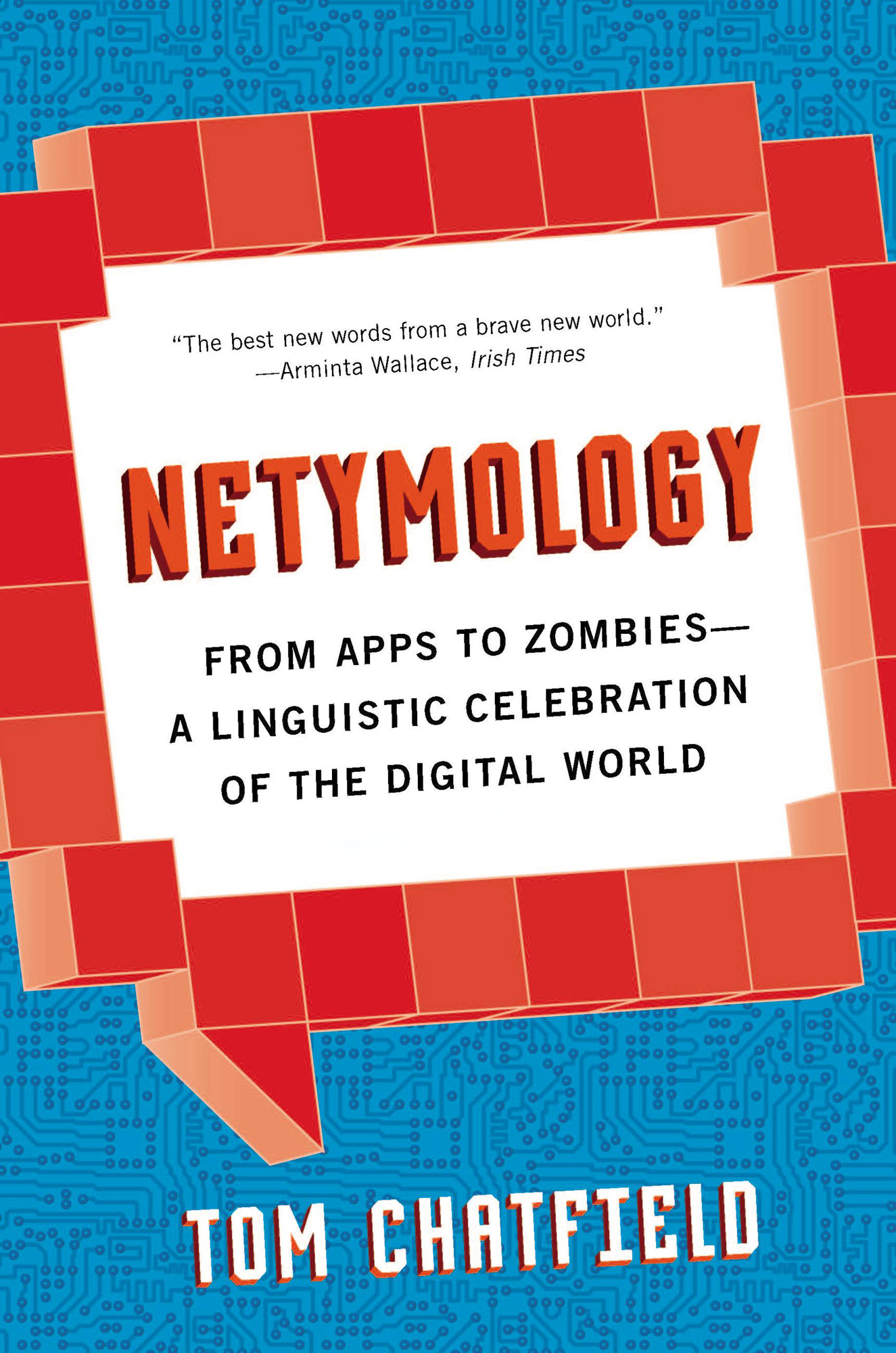
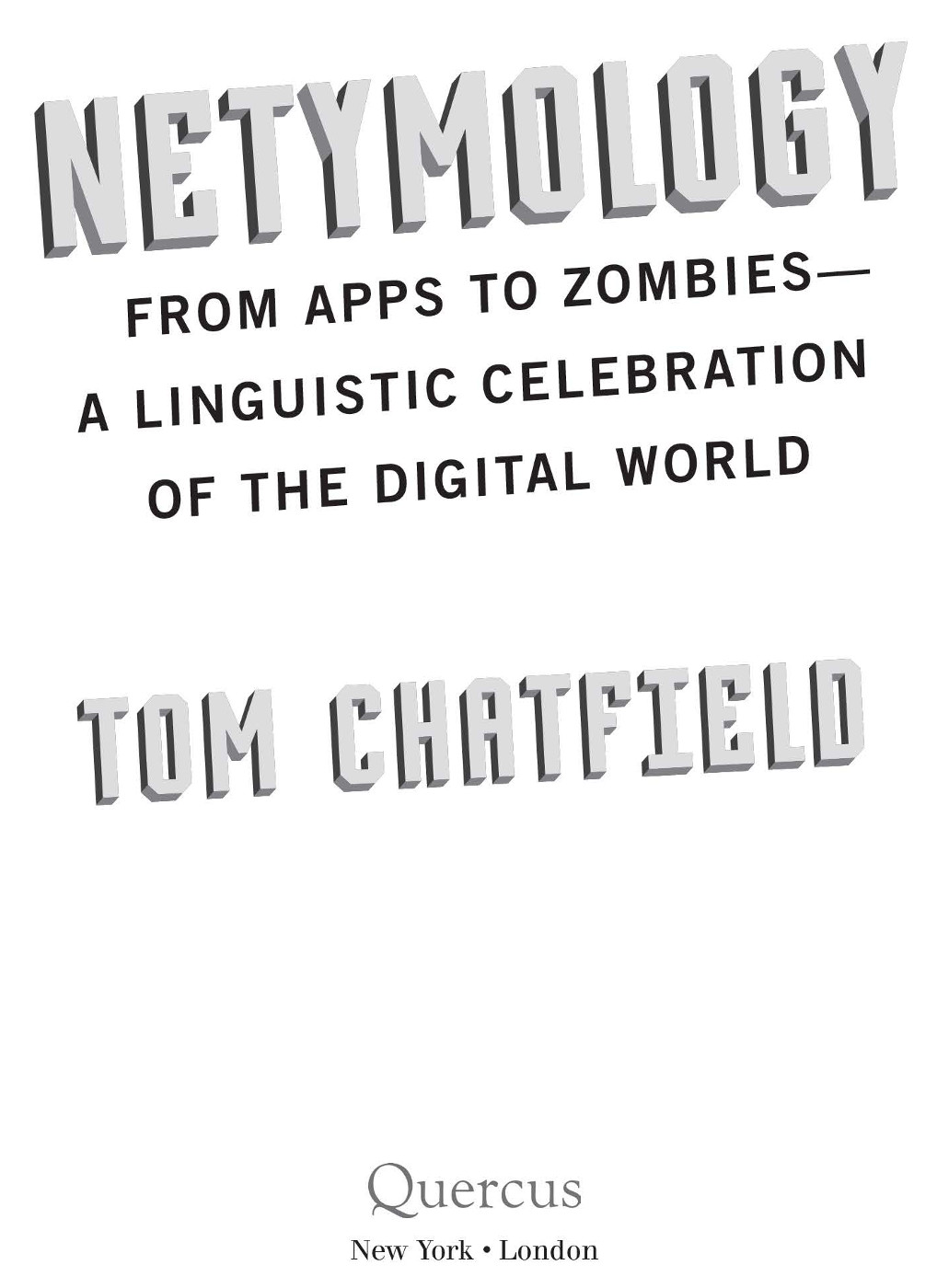

New York London
Copyright 2013 Tom Chatfield
Jacket design by Chris Sergio; Jacket illustration shutterstock
First published in the United States by Quercus in 2016
All rights reserved. No part of this book may be reproduced in any form or by any electronic or mechanical means, including information storage and retrieval systems, without permission in writing from the publisher, except by reviewers, who may quote brief passages in a review. Scanning, uploading, and electronic distribution of this book or the facilitation of the same without the permission of the publisher is prohibited.
Please purchase only authorized electronic editions, and do not participate in or encourage electronic piracy of copyrighted materials. Your support of the authors rights is appreciated.
Any member of educational institutions wishing to photocopy part or all of the work for classroom use or anthology should send inquiries to .
e-ISBN 978-1-623-65165-7
Library of Congress Cataloging-in-Publication Data
Names: Chatfield, Tom, 1980 author.
Title: Netymology : from apps to zombies : a linguistic celebration of the digital world / Tom Chatfield.
Description: New York : Quercus, 2016. | Includes .
Identifiers: LCCN 2016021585 (print) | LCCN 2016022334 (ebook) | ISBN 9781623651640 (hardback) | ISBN 9781623651657 (ebook) | ISBN 9781681445632 (library ebook)
Subjects: LCSH: Computer scienceTerminology. | Information technologyTerminology. | Computer networksTerminology. | BISAC: LANGUAGE ARTS & DISCIPLINES / Linguistics / Etymology. | COMPUTERS / Digital Media / General.
Classification: LCC QA76.15 .C46335 2016 (print) | LCC QA76.15 (ebook) | DDC 004dc23
LC record available at https://lccn.loc.gov/2016021585
Distributed in the United States and Canada by
Hachette Book Group
1290 Avenue of the Americas
New York, NY 10104
www.quercus.com
Ive never understood those who lament the internet as a kind of death for the English language. Just look at the ways in which most of us, every day, use computers, cellphones, websites, email, and social networks. Vast volumes of mixed media may surround us, from music to games and videos. Yet almost all of our online actions still begin and end with writing: text messages, status updates, typed search queries, screens packed with verbal exchanges, and underpinning it all countless billions of words.
The twenty-first century is a hypertextual arena in several senses (hyper, ancient Greek: over, beyond, overmuch, above measure). Digital words are interconnected by active links, as they can never be on the page. But they are also above measure in their supply, their distribution, and the range of roles they playfrom casual registers unthinkable a century ago to the most elaborately scholarly of debates and exegeses.
New things have always required new words, of course, and technological developments have fed into both written and spoken language since the earliest times. This is considerably trickier in some languages than others, thanks to the difficulty of expressing entirely novel words within fixed systems like symbolic characters (a computer in Mandarin is, for example, a dinnowhich literally means an electric brain; while din, meaning electric, itself originally described lightning).
With English, however, we have not only a language that has spent the best part of a millennium gleefully adopting new terms and ideas; we also have something truly international, whose history has become part of the history of countless places, peoples, and movements.
Today, globalization and new technology have vastly accelerated both the speed and the scale of linguistic evolutiona process that is blurring many boundaries between languages, dialects, and registers to the point of disintegration. Perhaps the greatest difference between digital and pre-digital times, however, is that its now a written (or, more precisely, a typed) rather than a spoken language driving these changes. The future of written words lies onscreenand these screens are steadily transforming not only how we communicate but what we mean and think.
Separated from human voices and faces, new conventions and registers are developing to express the emotional tone of typed words: from smiley faces built out of punctuation marks to subcultures of mockery and praise that adhere, in their own way, to unwritten etiquettes as elaborate as those of any Tudor court. Separated from pens and pages, too, these words are active agents in the world in a new sense: tools that can be countlessly replicated, adapted, and shared.
For some people, this loosening and cheapening of words is a tragedy, dragging cultural standards ever closer to the gutter. For others, thoughand I count myself among themwhats happening is simply too big, too important, and too exciting either to summarize or condemn.
Standard English, in which Im typing these words, appeared over several centuries as the dominant form of proper writing in our language. It was an enterprise that, for the first time, allowed the words we use to be regulated by reference to central authoritiesdictionaries, grammars, experts. The fruits of this standardization include a truly global written culture and a clear, comprehensible language of official culture and organization.
Whether we like it or not, however, many of the official intentions behind Standard English are already unofficially defunct. For the first time in history, we live in a culture not only of mass literacy (itself a relatively recent revolution) but of mass participation in written discourse. Online, reading and writingwhich not so long ago were among the most costly and elite of human activitiesare almost infinitely available at little or no cost. For better and for worse, we are no longer simply speakers of our own tongue: we are all becoming both authors and audiences.
Indeed, the art and science of computer programming has brought with it an entirely new species of language: a form of written expression whose terms encode not only meanings but also entire interactive systems. In an age of information technology, information itself is becoming the stuff of self-sustaining worldsworlds that consume an increasingly substantial proportion of our attention, innovation, effort, and desire for self-expression.
Sometimes it can all be overwhelming, with any attempt to describe the changes facing us almost instantly outdated. Indeed, perhaps the only and best solution to this situation is the internet itself: an eternally unfinished collaboration, pooling the words of many millions.
Writing and researching this book, I have been both daunted and bewildered at times. Above all, though, I have felt exhilaratedand lucky as a lover of language to be alive today. Many of the great scholars, sages, and authors of the past would have given anything to possess what a single screen can offer me in an instant: tens of millions of books, hundreds of millions of pages, and over a billion human voices competing in articulate cacophony.
Next page
